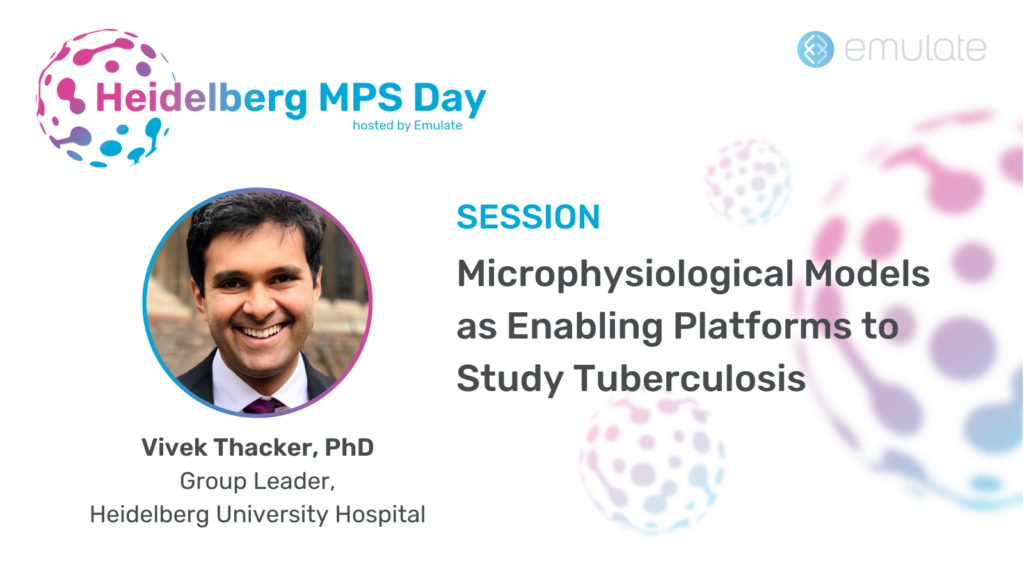Dr. Vivek Thacker’s presentation explores the innovative use of Organ-Chip models in studying tuberculosis (TB) pathogenesis and treatment. Highlighting his work at EPFL and Heidelberg University, Dr. Thacker details the integration of in vitro Organ-Chip systems with traditional mouse models to bridge the gap between simplistic cell culture and complex animal models. These systems provide high-resolution insights into TB’s early stages, bacterial interactions with pulmonary surfactant, and immune responses.
Key learnings from this presentation include how:
- 3D bacterial architectures, such as cords, play a role in bacterial resilience, immune evasion, and dissemination.
- These structures compress host cell nuclei and alter immune responses.
- Organ-Chips can be used to model antibiotic delivery, showing that bacterial cords impede drug efficacy—a finding validated in mouse models.
Dr. Thacker’s findings demonstrate the utility of Organ-Chips in developing more predictive and physiologically relevant platforms for studying TB, advancing both therapeutic approaches and fundamental understanding of the disease. This pioneering work underscores the potential of bioengineered systems in infectious disease research.

